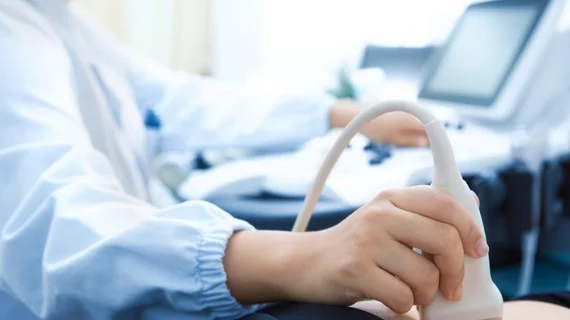Radiologists can utilize an advanced reporting approach to help providers better diagnose patients with potential appendicitis, including those whose ultrasound results are inconclusive.
Prior studies have shown the benefits of using multiple categories for reporting exams indeterminate for appendicitis in pediatric populations. But imaging experts tested this approach in adults, revealing positive early results on Monday
Keying in on whether the appendix was visible on imaging or not, and the presence or absence of secondary inflammation features, proved useful in predicting post-test appendicitis, researchers explained in the European Journal of Radiology.
Among 410 patients whose appendix was obscured on US and showed no secondary features, 8.3% were diagnosed with appendicitis. Conversely, 54.5% of those with inflammation features and the organ not visualized on imaging were ultimately diagnosed with the painful condition.
“Our results validate the pediatric approach to multi-categorical reporting of appendiceal US, as it provides more precise estimates of the post-test probability of appendicitis in adults,” Alexander Froc, and co-authors with the Department of Diagnostic Radiology at Queen Elizabeth II Health Sciences Centre and Dalhousie University in Canada, explained Oct. 4.
The conclusions are based on more than 560 ultrasound exams for suspected appendicitis performed at a single emergency department between May 2013-April 2015.
In addition to analyzing categorial reporting, the team also investigated whether any patient or radiology factors were associated with indeterminate and false US exams.
Froc et al. found false results were 1.9 times more likely among females and 3.8 times more likely if patients did not have abdominal tenderness. Additionally, age, scan time and the radiologist’s subspecialty were not associated with ultrasound results.
“In conclusion, the only factors associated with a false/indeterminate appendiceal US examination were female sex and absence of pain on sonographic interrogation,” the Canadian authors wrote. “Our study found that more precise estimates of the post-test probability of appendicitis can be achieved with multi-categorical reporting of appendiceal US in adults.”
View the full study here.

